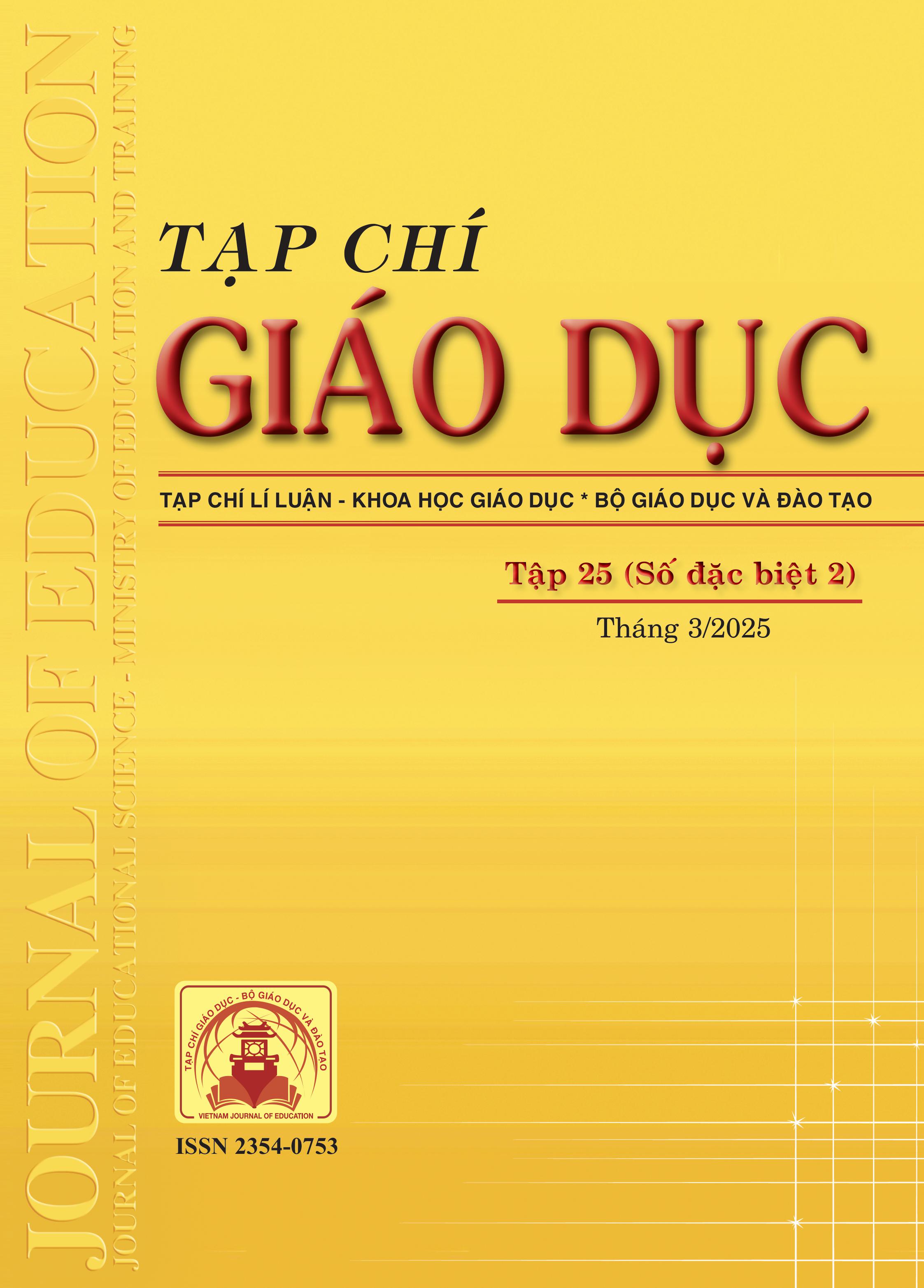Sử dụng trò chơi kĩ thuật số trong dạy học chuyên đề “Truyền thông tin bằng sóng vô tuyến” (Chuyên đề học tập Vật lí 11) theo hướng phát triển năng lực số cho học sinh
- Từ khóa:
- Digital games
- digital skills
- Physics 11
- radio waves
Tóm tắt
With the strong development of Industry 4.0, digital competence becomes an important factor for students, the future citizens of the country. According to the 2018 Physics General Education Program, the knowledge content of electromagnetic waves, “Transmitting information by radio waves” is an abstract and relatively difficult problem for high school students. In addition, teaching practice shows that experimental equipment is almost insufficient in high schools. Therefore, to meet the requirements of current educational innovation, the use of digital games in teaching is an effective method to improve teaching efficiency. In this article, we have used the secondary document research method as the main research method, thereby proposing a digital game teaching process for lessons in the topic “Transmitting information by radio waves” in Physics 11 and illustrated through the lesson “Modulation”. To achieve high efficiency when using digital games in teaching, there needs to be coordination and unity between teachers and schools in all stages of the teaching process such as lesson design and teaching aids.
Tài liệu tham khảo
Bộ GD-ĐT (2020). Công văn số 5512/BGDĐT-GDTrH ngày 18/12/2020 về việc xây dựng và tổ chức thực hiện kế hoạch giáo dục của nhà trường.
Clark, D. B., Tanner-Smith, E. E., & Killingsworth, S. S. (2016). Digital Games, Design, and Learning: A Systematic Review and Meta-Analysis. Review of Educational Research, 86(1), 79-122.
Đỗ Thị Phương Thảo, Phạm Minh Khánh, Trần Thị Phương Lan (2021). Thiết kế và sử dụng trò chơi trong dạy học Vật lí 11. Tạp chí Giáo dục, 496, 24-28.
Đỗ Văn Hùng, Phạm Hải Chung, Nguyễn Thị Kim Dung, Phan Thanh Đức, Lê Quốc Hải, Trần Đức Hòa, Mai Anh Thơ, Bùi Thanh Thủy (2022). Năng lực số. NXB Đại học Quốc gia Hà Nội.
Ferrari, A. (2012). DIGCOMP: A Framework for Developing and Understanding Digital Competence in Europe. Luxembourg: Publications Office of the European Union.
Kiili, K. (2005). Digital game-based learning: Towards an experiential gaming model. Internet and Higher Education, 8(1), 13-24.
Law, N., Woo, D., Torre, J. D. L,. & Wong, G. (2018). A Global Framework of Reference on Digital Literacy. UNESCO Institute for Statistics.
Lê Anh Vinh, Bùi Diệu Quỳnh, Đỗ Đức Lân, Đào Thái Lai, Tạ Ngọc Trí, (2021). Xây dựng khung năng lực số cho học sinh phổ thông Việt Nam. Tạp chí Khoa học Giáo dục Việt Nam, số đặc biệt tháng 1, 1-11.
Lê Văn Giáo, Ngô Thị Thanh Tuyền (2016). Sử dụng trò chơi trong dạy học Vật lí. Tạp chí Khoa học, Trường Đại học Đồng Tháp, 18, 112-115.
Lori, M., Takeuchi, M., & Vaala, S. (2014). Level up Learning: A National Survey on Teaching with Digital Games. Joan Ganz Cooney Center at Sesame Workshop, Games and Learning Publishing, New York.
Marsh, J., Plowman, P., Yamada-Rice, D., Bishop, J., & Scott, F. (2020). Digital play: A new classification. In Digital Play and Technologies in the Early Years, (pp. 20-31), Routledge.
Trịnh Thị Phương Thảo, Lê Thị Diễm Quỳnh, Đào Minh Hoàng, Vũ Thanh Tuyết (2022). Thiết kế và sử dụng trò chơi kĩ thuật số trong dạy học môn Toán lớp 6 ở trường trung học cơ sở. Tạp chí Giáo dục, 22(7), 14-18.
Đã Xuất bản
Cách trích dẫn
Số
Chuyên mục
Giấy phép

Tác phẩm này được cấp phép theo Ghi nhận tác giả của Creative Commons Giấy phép quốc tế 4.0 .












